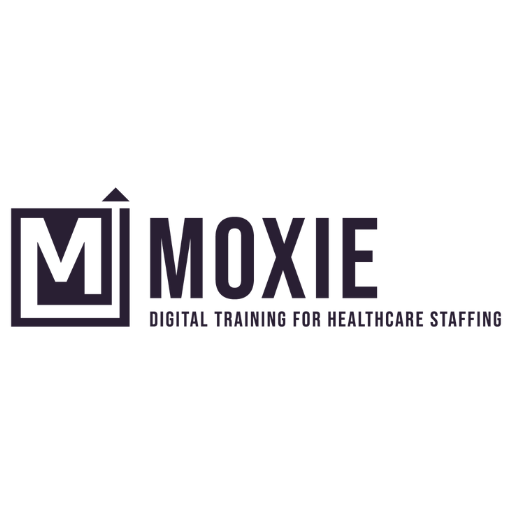By: Adam Gomez
As trainers who work exclusively with travel healthcare recruitment teams, we have a tremendous appreciation for the challenges recruiters face. But in some situations, the difficulties recruiters encounter are self-induced, and may stem from well-studied cognitive biases, which can impact their perception and alter their behavior. Often, this leads to errors in judgment or the formation of inaccurate representations of the facts (i.e., reality).
Here are a few examples of the most common biases at work inside the minds of healthcare recruiters:
Anchoring Bias
Ask a recruiter how much a traveler should expect to make weekly and you will get a broad range of answers. Consider for a moment where they arrived at that number. Perhaps they read it on Facebook? Or, maybe they spoke to a few ‘experienced travelers’? Wherever it came from, somewhere within the range they provide is a number that serves as a “sweet spot” for each one of them. Whatever the number is, it serves as an anchor from which future comparisons are made. The higher that number, the greater the number of job opportunities that will fail to reach that standard. Conversely, the lower that number, the greater the number of job opportunities which will meet or exceed that standard. How does this impact the actions (behaviors) in which the recruiter engages?
Let’s take a look. When a recruiter feels that most jobs fail to meet their personal standard for what a traveler shouldexpect to make, it may make finding and pitching jobs difficult. At the very least, they’re more likely to lack confidence when they do pitch jobs which can be devastating in itself. But what happens when a recruiter has many job options that meet or exceed their sweet spot? These recruiters are much more likely to confidently pitch several opportunities to a candidate, thereby increasing their odds for success.
A list of questions is provided below to determine whether this bias is impacting your behaviors around finding and pitching jobs:
What should a traveler expect to make on a travel assignment?
Of the jobs I have available now, what percentage meets or exceeds that amount?
When searching for jobs for my candidates, am I basing my search on my own standard, or on what the candidate has stated is necessary for them to take an assignment?
When pitching jobs, am I sharing my own feelings regarding the compensation package being offered, or am I allowing the candidate to express their own feelings regarding the offer?
Anchoring bias can have a profound effect on how recruiters search for and pitch jobs to candidates. What are some other areas where this bias may influence a recruiter’s actions?
Self-Serving Bias
Wanna know who the whiniest people in the world are? Recruiters after a for-sure deal falls through. Yeah, I said it…
It’s okay, we should all just own it. And yes, I was once a whiney recruiter, too. When deals fall through, it’s rarely because we did something wrong. I mean, chances are it was something outside of our control that caused the deal to dissolve before our very eyes, right? We’re likely to feel this way for good reason. It’s our brains’ way of dealing with unflattering information about Numero Uno. Right, wrong, or indifferent, it’s our way of protecting ourselves in what social psychologists refer to as a defense mechanism. After all, it’s easier to process a deal that dies when there was “nothing we could do to prevent it.” Don’t get me wrong, sometimes that is truly the case – there was nothing you could have done to save it. But, if we’re honest with ourselves, we’d likely find that there are more times that we could have saved it than we’d ever like to admit.
A self-serving bias describes our tendency to blame external forces when bad things happen and to give ourselves credit when good things happen. In how many other situations might this bias impact your recruitment efforts?
Actor – Observer Bias
If I’m late for work, it’s because something catastrophic and outside of my control happened to me. If you’re late for work, it’s because you don’t take your job seriously. Ever felt that way about anyone you’ve worked with? The actor-observer bias describes the tendency to attribute our own actions as the result of external factors while attributing others to internal factors.
Here’s another example: A candidate you’re speaking with is interested in a position but is asking for more money than you’re able to offer. Haven’t heard that one before, right? As their recruiter, you may feel the candidate is greedy, “money hungry”, or “playing games” (internal factors).
But, now let’s assume it were you considering the same position. If it didn’t pay what you needed to make in order to pay your bills (external factors), certainly you wouldn’t consider the position. Right?
It’s pretty easy to see how prevalent this particular bias is in the travel healthcare industry. How do you think this impacts your future actions as a recruiter with this particular candidate? What about with other candidates you engage with in the future?
Choice-Supportive Bias
How many times as a recruiter are you put in a position where you’ve got to go to bat for your traveler? If you’ve been doing the job long enough, the answer is probably quite a bit. Around the country, account managers are asking recruiters, “Is your nurse solid?” And of course, your answer is yes – at least 9 out of 10 times. After all, you chose to work with them! And you wouldn’t choose to work with someone who isn’t solid, right? And if your traveler’s contract is terminated within the first couple weeks it’s likely NOT the result of anything they did wrong but rather some external factor outside of their or your control. We’re likely to think in this way because of our tendency to feel positive about something we choose, even when presented with obvious flaws. You become a victim of your own subjective perception of the situation!
Now, let’s say you didn’t choose that traveler. For example, let’s say you inherited a traveler from another recruiter who left your company. How will you react in that same situation? Chances are, you’re much more likely to view the situation objectively and see any existing flaws more accurately.
Recruiters encounter many challenges in the travel healthcare staffing industry. But some challenges are self-induced. In this article, we reviewed only a few of the well-recognized cognitive biases that impact each one of us. Understanding how these biases impact your actions enables you to overcome the often deleterious effects they can have on your success. It’s like they say, “Knowing is half the battle.” I’d love to hear from you regarding your personal experiences in dealing with biases. Please comment below and share with anyone you feel may find this beneficial! Thanks for reading!





